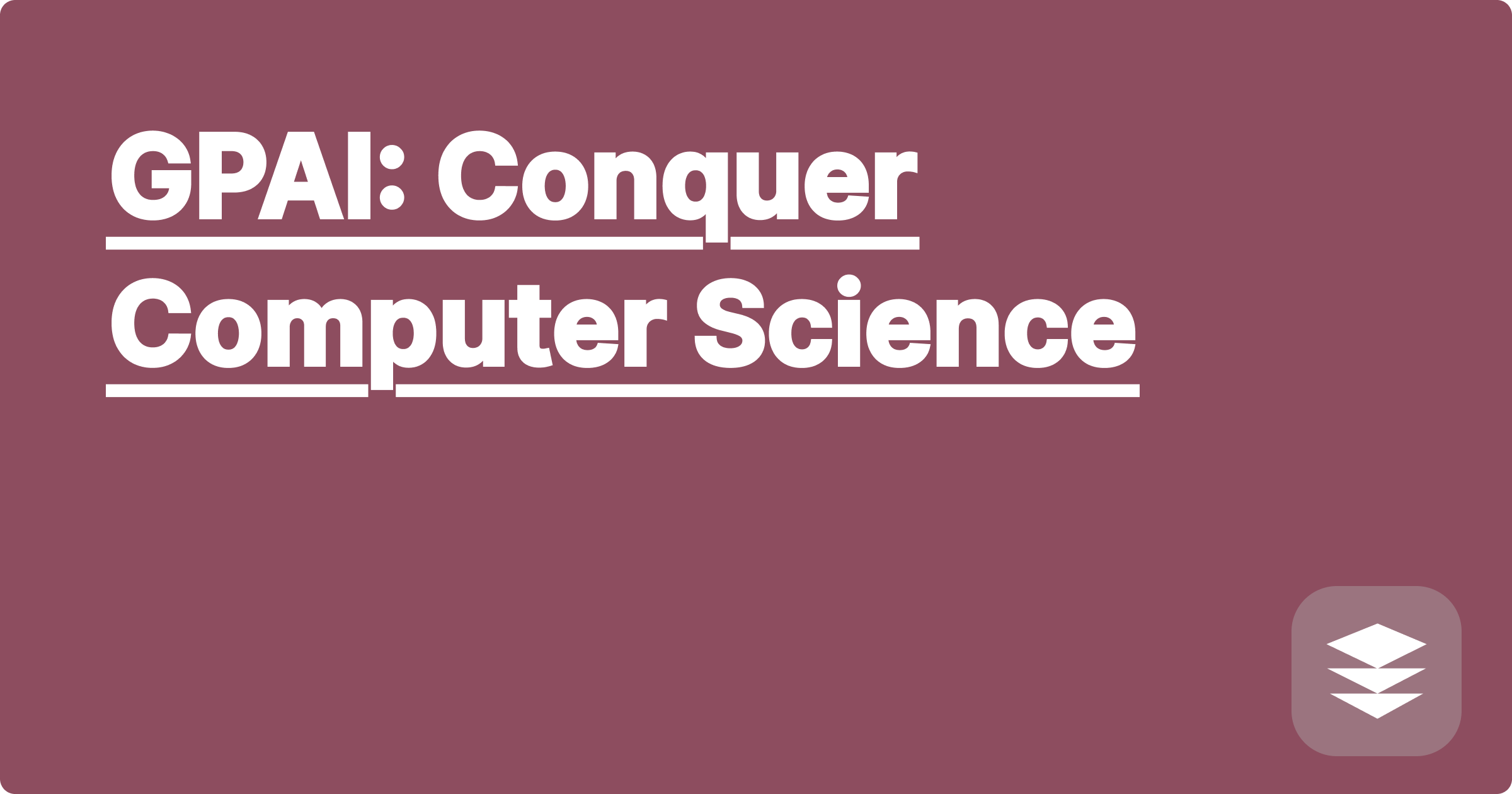
The ever-increasing complexity and breadth of computer science pose a significant challenge for STEM students and researchers. Staying abreast of the latest advancements, grasping intricate concepts, and efficiently completing complex tasks can feel overwhelming. Artificial intelligence offers a powerful toolkit to navigate these challenges, providing valuable support in learning, research, and problem-solving. AI can empower STEM individuals to not only conquer their coursework but also to accelerate their research and innovation.
This matters deeply for STEM students and researchers because the ability to leverage AI tools is rapidly becoming a crucial skill in the field. Those who can effectively integrate AI into their workflow will be better equipped to handle the demands of their studies and research, ultimately contributing to advancements in computer science and related fields. Mastering these tools can unlock new possibilities for exploration and discovery, pushing the boundaries of what's possible in computer science.
Computer science encompasses a vast landscape of complex topics, ranging from theoretical foundations like algorithm analysis and computational complexity to practical applications like software development and machine learning. Students often struggle with grasping the intricacies of these subjects, especially when faced with challenging assignments and projects. The sheer volume of information, combined with the rapid pace of technological advancements, can make it difficult to keep up. Furthermore, traditional learning methods may not always be effective in conveying the nuances and practical applications of these complex concepts. Research in computer science presents its own set of challenges, requiring extensive literature reviews, data analysis, and the development of innovative solutions. The time and effort required to conduct thorough research can be substantial, hindering progress and limiting the scope of exploration.
AI tools like ChatGPT, Claude, and Wolfram Alpha offer a transformative approach to tackling these challenges. ChatGPT and Claude excel at natural language processing, enabling them to understand and generate human-like text. This makes them invaluable for tasks such as explaining complex concepts, generating code snippets, and brainstorming research ideas. Wolfram Alpha, with its powerful computational engine, can perform complex calculations, provide step-by-step solutions to mathematical problems, and offer insights into a wide range of scientific domains. By strategically integrating these tools into their workflow, STEM students and researchers can significantly enhance their learning and research productivity.
Let's consider the process of understanding a complex algorithm like Dijkstra's algorithm for finding the shortest path in a graph. First, you can use ChatGPT or Claude to provide a high-level explanation of the algorithm's purpose and basic principles. Then, ask the AI to break down the algorithm into smaller, more manageable steps, explaining each step in detail. You can even request specific examples or visualizations to further clarify the concept. Next, use Wolfram Alpha to explore the mathematical underpinnings of the algorithm, perhaps by calculating the shortest path between specific nodes in a sample graph. Finally, ask ChatGPT or Claude to generate code snippets implementing the algorithm in your preferred programming language. This iterative process allows you to approach the problem from different angles, solidifying your understanding and building practical skills.
Consider the problem of implementing a binary search algorithm. You could ask ChatGPT to generate a Python implementation of binary search. The AI might provide code like this: def binary_search(arr, x): low = 0 high = len(arr) - 1 while low <= high: mid = (high + low) // 2 if arr[mid] < x: low = mid + 1 elif arr[mid] > x: high = mid - 1 else: return mid return -1. You can then use this code as a starting point, modifying it to fit your specific needs or experimenting with different input values. For a more mathematical example, you might use Wolfram Alpha to solve a complex integral or to analyze the properties of a specific mathematical function. These practical applications demonstrate the versatility and power of AI tools in tackling real-world STEM problems.
To effectively leverage AI in STEM education and research, it's crucial to develop a strategic approach. Don't rely solely on AI for answers; instead, use it as a tool to enhance your understanding and accelerate your learning process. Always critically evaluate the output generated by AI tools, ensuring its accuracy and relevance. Experiment with different AI tools and find the ones that best suit your learning style and research needs. Furthermore, actively engage with the material, asking clarifying questions and seeking deeper understanding. By combining the power of AI with your own critical thinking and problem-solving skills, you can achieve significant academic success.
In conclusion, the integration of AI tools like ChatGPT, Claude, and Wolfram Alpha into the STEM workflow represents a paradigm shift in how students learn and researchers conduct their work. By embracing these powerful tools and developing effective strategies for their use, STEM individuals can overcome the challenges of complex coursework and research, unlocking new avenues for exploration and innovation. Start exploring these AI tools today and discover the transformative potential they hold for your academic and professional journey.
GPAI: Data Analysis Simplified
GPAI: Your Differential Equations Tutor
GPAI: Perfect Your Lab Reports
GPAI: Programming Homework Ace
GPAI: Your Physics Exam Partner
GPAI: Streamline Your Research
GPAI: Conquer Computer Science